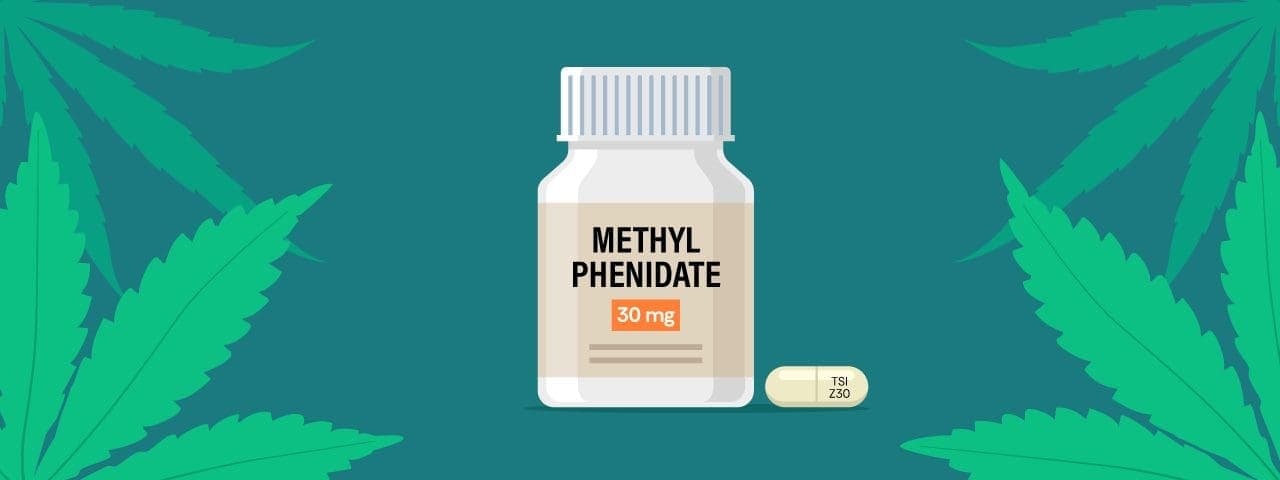Can you mix weed and antibiotics?

Article written by

April AcernoContent Writer
Content reviewed by

Dr. Mark KasabuskiDirector of Provider Operations
Some evidence suggests that it’s generally safe to use cannabis while taking antibiotics to treat an infection. However, mild to moderate interactions may occur, especially if you’re taking more than the recommended dose of either product.
What are antibiotics?
Antibiotics are medications used to treat bacterial infections in your body. Various types of antibiotics exist to treat different types of infections. Some common options include:
- Amoxicillin (Amoxil)
- Cephalexin (Keflex)
- Azithromycin (Z-Pak)
- Ciprofloxacin (Cipro)
- Doxycycline (Vibramycin, Adoxa, Doryx, Morgidox, Monodox, Oracea, Atridox, Ocudox)
- Cefdinir (Omnicef)
How do antibiotics work?
Antibiotics work by killing bacteria and stopping them from multiplying. Each antibiotic may target different types of bacteria and use different methods to fight an infection.
Antibiotics can be safe and effective when used as directed. However, they come with short and long-term risks.
Short-term risks:
All antibiotics come with a risk of side effects, including:
- Diarrhea
- Kidney damage
- Skin rash
- Yeast infection
Long-term risks:
Prolonged antibiotic use may also lead to:
- Poor gut health: Frequent use of antibiotics may lead to an imbalance in your gut bacteria. This can increase your risk of other health conditions, such as irritable bowel syndrome (IBS).
- A weakened immune system: Some studies suggest that prolonged use of antibiotics can weaken your immune system, increasing your risk of future infections. But more research is needed to fully understand these long-term effects.
- Antibiotic resistance: Overuse of antibiotics can cause bacteria to change in a way that makes it harder for the medication to work effectively in the future.
To minimize your risk of short and long-term side effects, only use antibiotics as directed.
Is it safe to mix weed and antibiotics?
There is little research on the direct interaction between cannabis and antibiotics.
If you’re using antibiotics to treat a respiratory infection, smoking or vaporizing cannabis is not recommended as it may irritate your respiratory system and slow down healing.
However, cannabis may inhibit liver enzymes that help your body break down and metabolize certain antibiotics. This leads to increased levels of medication in the bloodstream, which can cause effects to feel stronger and last longer than intended. It could also increase your risk of side effects.
Before you combine cannabis with antibiotics, it’s best to talk to your doctor or pharmacist.
Can I have CBD with antibiotics?
Cannabidiol (CBD) is a compound in cannabis that’s non-intoxicating. It’s commonly used to help treat certain health issues, including:
Research on the interaction between CBD and antibiotics is limited. But CBD can also inhibit the levels of liver enzymes that help antibiotics metabolize, which can affect how your body reacts and increase your risk of side effects.
How to take antibiotics and weed
If you’re prescribed antibiotics, tell your doctor about your cannabis use and ask for guidance. Your doctor can help you develop a safe dosing plan.
You can also follow these safety tips:
- Be cautious with dosing: Take only the recommended amounts of cannabis and the antibiotic you’ve been prescribed. This can help lower your risk of side effects.
- Consider your other medications: If you’re taking other medications, ask your doctor if it’s safe to combine them with antibiotics and cannabis.
The takeaway: Combining cannabis with antibiotics can likely be done safely
In many cases, cannabis and antibiotics may be used together safely, but it depends on the specific antibiotic, dose, and method of cannabis use.
If you have any concerns about an interaction between cannabis and antibiotics, speak with your doctor or pharmacist, or consult a provider at Leafwell to answer your questions.
Resources
- Antibiotics, gut microbiota, and irritable bowel syndrome: What are the relations? https://pmc.ncbi.nlm.nih.gov/articles/PMC8968486/
- Antibiotic-induced immunosuppression — A focus on cellular immunity. https://pmc.ncbi.nlm.nih.gov/articles/PMC11591424/
- Antibiotic resistance. https://www.ncbi.nlm.nih.gov/books/NBK513277/
- Antibiotic side effects. https://www.ahrq.gov/sites/default/files/wysiwyg/antibiotic-use/long-term-care/one-pager-side-effects.pdf
- Antimicrobial and cytotoxic effects of cannabinoids: An updated review with future perspectives and current challenges. https://www.mdpi.com/1424-8247/15/10/1228
- A-pinene: A never-ending story. https://www.sciencedirect.com/science/article/pii/S0031942221002065
- Cannabinoids as antibacterial agents: A systematic and critical review of in vitro efficacy against Streptococcus and Staphylococcus. https://pmc.ncbi.nlm.nih.gov/articles/PMC11591022/
- Differential interactions of selected phytocannabinoids with human CYP2D6 polymorphisms. https://pmc.ncbi.nlm.nih.gov/articles/PMC8455456/
- Effect of penicillin-based antibiotics, amoxicillin, ampicillin, and piperacillin, on drug-metabolizing activities of human hepatic cytochromes P450. https://www.jstage.jst.go.jp/article/jts/41/1/41_143/_article/-char/ja/
- Gut microbiome and antibiotics. https://www.sciencedirect.com/science/article/abs/pii/S0188440917302333
Get Your Medical Card
Frequently asked questions
Get answers to common questions about mixing cannabis and weed.


